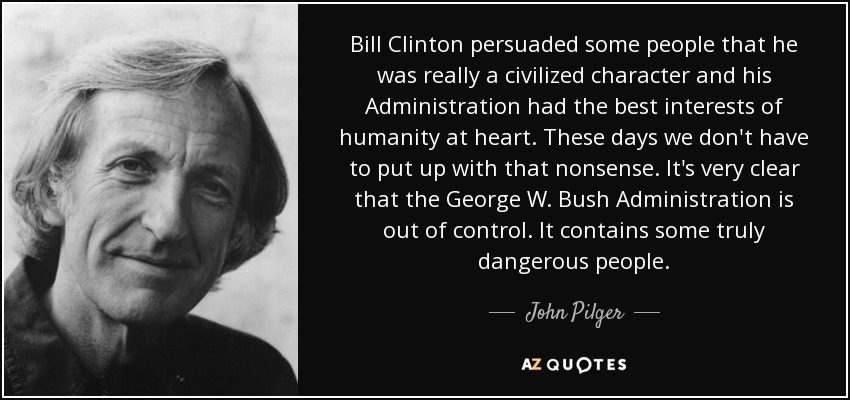Humanity Quotes - Page 40
-
-
 Bill Clinton persuaded some people that he was really a civilized character and his Administration had the best interests of humanity at heart. These days we don't have to put up with that nonsense. It's very clear that the George W. Bush Administration is out of control. It contains some truly dangerous people.
Bill Clinton persuaded some people that he was really a civilized character and his Administration had the best interests of humanity at heart. These days we don't have to put up with that nonsense. It's very clear that the George W. Bush Administration is out of control. It contains some truly dangerous people.
-
You May Also Like Quotes On:









